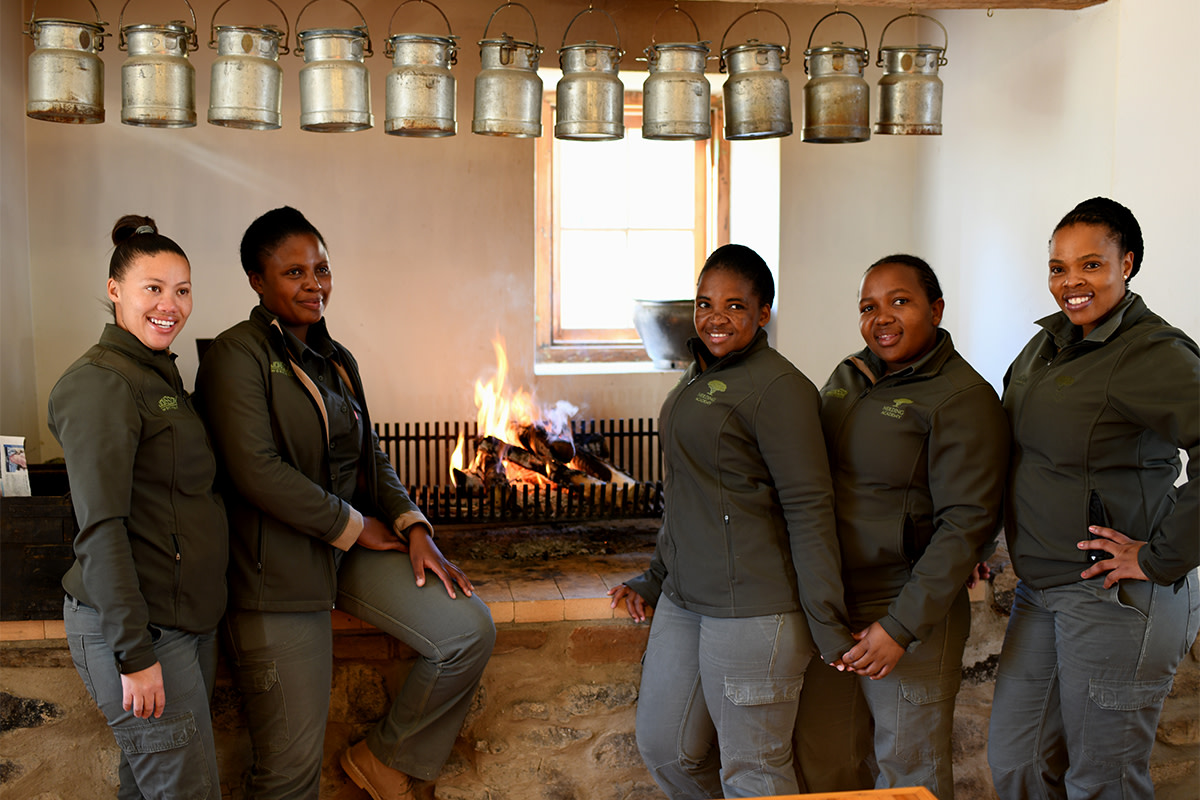
‘Soil is the great connector of life…’ Wendell Berry
A century ago eminent American poet Robert Frost wrote a poem entitled ‘The Need to be Versed in Country Things’, one of his many musings on the often overlooked connection between the natural world and the human world. As someone who grew up on the vibrant red earth of Africa and now divide my time between the pavements of New York, it’s a disconnect I know all too well and so this title came to mind when I visited the Herding Academy in South Africa a few weeks ago and found myself on a steep learning curve. For here, in the middle of the semi-desert region of the Karoo, something remarkable is afoot in that sheep are being used to mimic the natural migratory movements of animals and in so doing, this brittle landscape is being rehabilitated, perhaps most significantly, in the midst of a drought.
While I’ve long been familiar with the annual migration of wildebeest in East Africa, I was amazed to discover that a much bigger migration had played out in South Africa as recently as 120 years ago, when herds of springbok numbering in the millions, would sweep across the Karoo plains in a thundering tsunami of hooves. In fact, one particular springbok migration in 1849 is reported to have taken three days to pass through the town of Beaufort West, according to Lawrence Green’s book Karoo. The wonder of such a natural phenomenon and that it occurred quite so recently is particularly poignant considering that farming, fences, roads, hunting and general human development were the cause of its demise.
‘Essentially, the buck set off on instinct in search of greener pastures and water and with little time for grazing would eat whatever was before them,’ explains Johan Brouwer, of The Herding Academy. ‘The pace with which they moved ensured that their hooves churned up the crusted soil beneath them while their dung provided compost for the soil they left behind.’ With reports of chest-high grasses in the area in the mid 1800s, the holistic grazing that resulted from the migration was clearly beneficial for the veld. So much so it forms the basis of a method known as regenerative agriculture or planned grazing management, as espoused by former Zimbabwean livestock farmer and ecologist Allan Savory, who had noticed how degraded landscape became when animals were removed from it. As the President and co-founder of The Savory Institute, his mission is to use holistic management to regenerate the world’s grasslands and address the global issues around desertification, climate change and food and water insecurity.
‘I was fortunate to meet Allan a few years ago and after a fascinating discussion I decided to try it out,’ recalls Johan. ‘I’ll admit I was initially pessimistic but that soon gave way to total acceptance and I can now say without question that restoring the veld using livestock is probably one of the most effective measures in mitigating climate change.’ It’s unprecedented too.
Based on St Olive’s Farm, The Herding Academy is the first and only one of its kind in the world. Together with the , and the SA College for Tourism, it’s a conservation triumvirate owned and supported by philanthropists Gaynor and Johann Rupert, with the backing of Conservation South Africa.

The Academy accepted its first intake of twelve students in 2018 and offers a year-long course that is mostly field-based with students getting out into the veld for seven days at a time to herd sheep in spurts of intensive grazing. ‘Sheep farming has traditionally centered around keeping sheep in the same camp for most of their lives which of course leads to overgrazing,’ explains Johan. ‘Now the soil has time to recover, and to allow for the germination of new grass and plant life that serves to increase the organic content or carbon bank of the soil.’
Until my visit, I mistakenly assumed that if the veld was to return to any pristine sense of its self, it would need to be left untouched. Instead I learned that wherever we live in the world – plants, soils, animals and even humans, evolve and depend upon each other for survival. And that healthy soil is inextricably linked to the broader goals of conservation. That I was delighted to discover that eight of the twelve students accepted for this year’s course were women is an understatement. ‘The need for herders is so big that we need to train 30,000 students for Southern Africa alone,’ says Johan. ‘Women are an obvious choice in that they play a much more substantial role with animals in their rural communities while most of the men go off to work in the cities.’ It’s an age-old narrative with a contemporary twist that gives new meaning to making change at a grass-roots level.
If you would like more information on The Herding Academy, or if you would like us to include a visit to the academy as part of your next ROAR AFRICA trip, email welcome@roarafrica.com.



